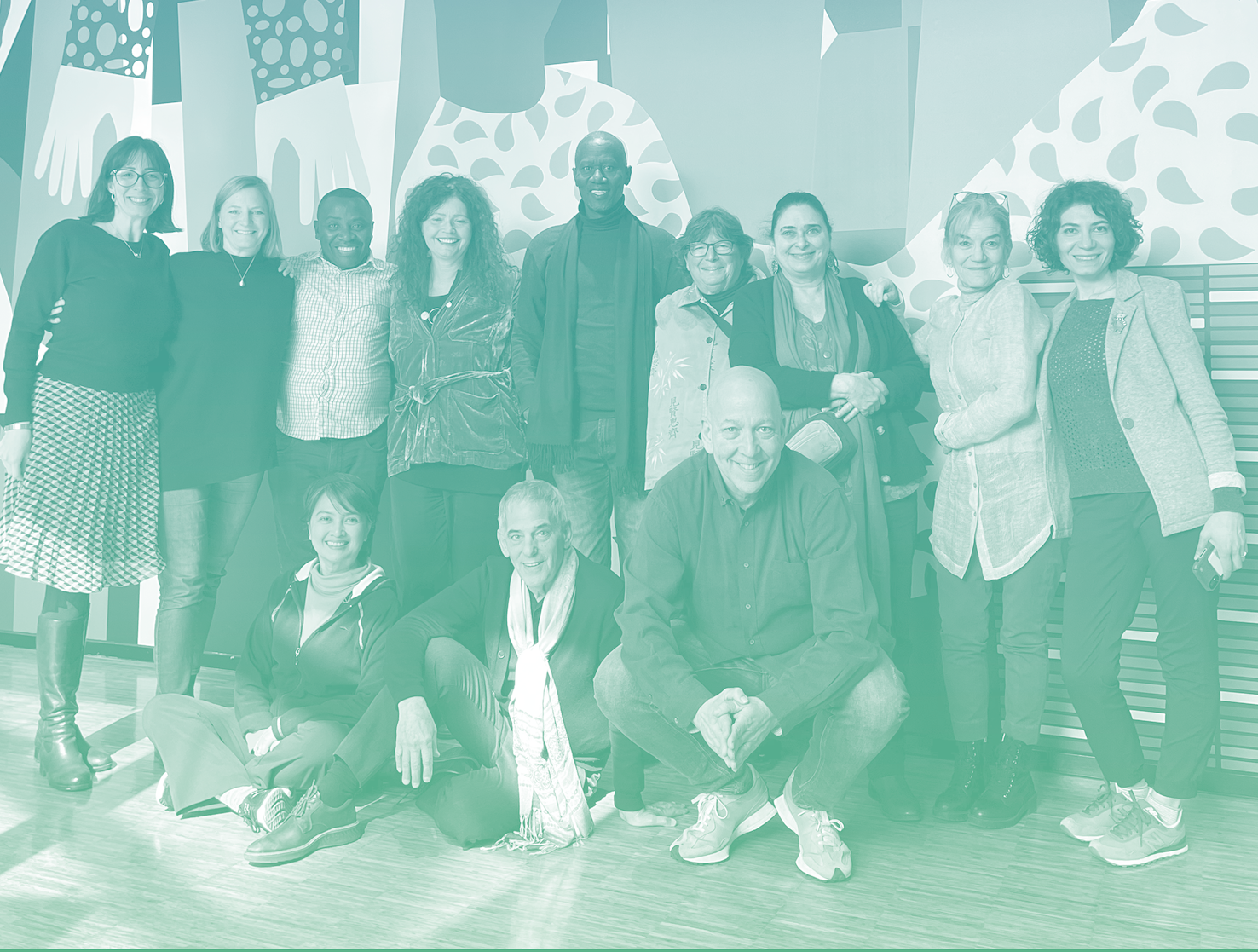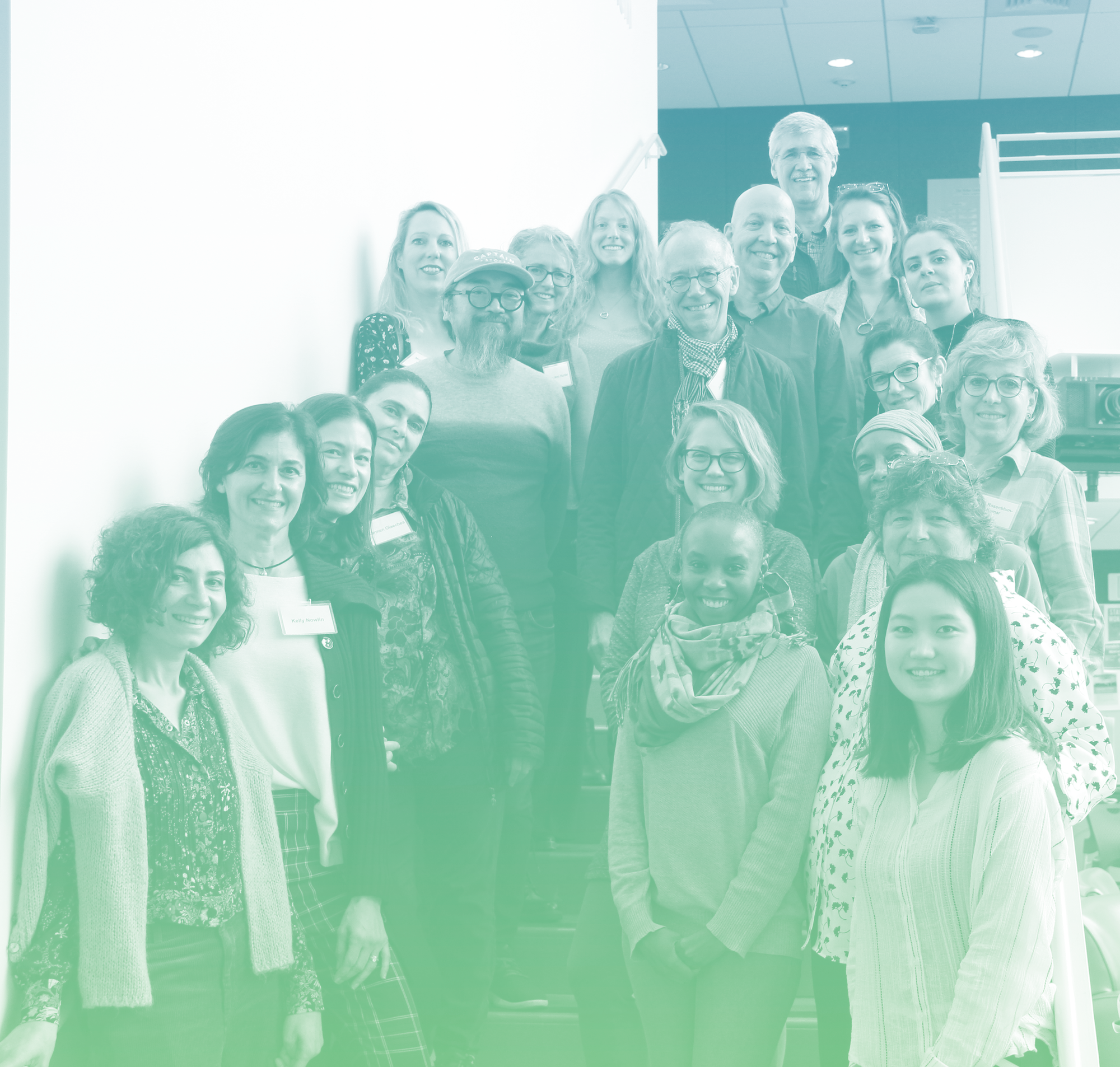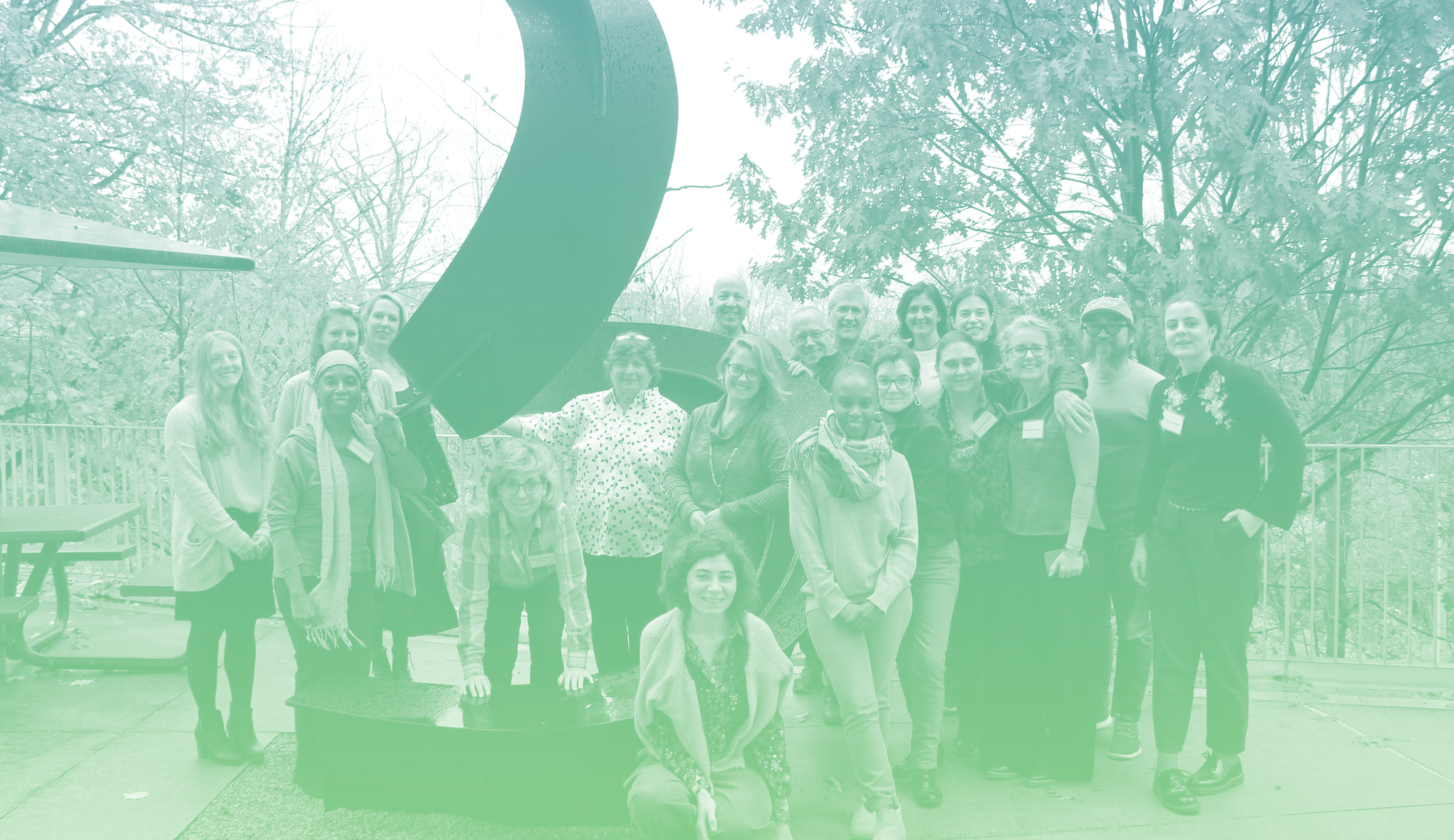
The Beginning
IMPACT began as an idea to establish a sustained platform for work at the nexus of arts, culture, peace and justice. This idea emerged from Acting Together on the World Stage, a collaboration between Brandeis University and Theatre Without Borders designed to explore the contributions of performance to conflict transformation. From 2005 – 2011, a geographically diverse team of artists, researchers and conflict transformation scholar/practitioners convened on several occasions, and produced a two-volume anthology, a feature length documentary, and a toolkit of short videos and print teaching resources.
Core Values
Acting Together generated many collaborations that have yielded significant activities, including IMPACT itself. It laid the groundwork for initiatives informed by core values of intellectual and aesthetic rigor, hospitality, and reciprocity. It established important commitments to diversity, by valuing knowledge arising from scholars, artists, practitioners and community leaders and exchanges among them, and by including cultural productions arising from communities (such as ritual and ceremony) alongside artist-based and community-based performance practices.
Emerging ACCT Field
Key players in Acting Together came to believe that the potential contributions of arts and culture to the creative transformation of conflict could not be realized in the context of one-off conferences or events, or even multi-year projects. We realized the need for a well-resourced and on-going platform that could support sustained conversations about questions of ethics and efficacy, support peer-to-peer learning across regions, and develop respectful relationships of reciprocity amongst practitioners, researchers, policy-makers and funders – including those working at local, national, regional and global levels. The idea of a field of arts, culture and conflict transformation emerged, an ecosystem of interdependent players whose efficacy is reciprocally interdependent.
The idea for a platform to support this field or ecosystem evolved through many conversations, as we advocated for the idea in multiple venues, including a 2012 collaboration with Search for Common Ground on a report “Strengthening Work at the Nexus of the Arts and Peacebuilding,” presented at a roundtable at USIP. We also strengthened connections among geographically dispersed scholars and practitioners through the newly forming Arts and Peace Commission of the International Peace Research Association. Based on responses to the Acting Together documentary, we were invited by OHCHR to research the contributions of arts and culture to human rights and reconciliation, work that informed the OHCHR’s special rapporteur on cultural rights; her report is available in multiple languages here.

Initial Planning Phase
IMPACT as an entity was formed in 2017, initially as a consortium of Brandeis University and Juniata College in the US, and Maseno University in Western Kenya. A planning grant from the Mellon Foundation supported research into the needs of the field; we commissioned researchers on every continent to conduct interviews with some 160 organizations, large and small. In virtual and face-to-face learning exchanges, the need for a platform to support the emerging field of peacebuilding and the arts and connect people was affirmed by participants: some based in arts organizations, some in peacebuilding organizations, and others involved with monitoring and evaluation. Reports were written and disseminated, and, as a result of a 2018 Design Lab, a diverse leadership circle and multiple working groups were formed. This Design Lab took a systems theory approach, with participants focusing on complex – rather than complicated – conflicts, exploring processes that would support and sustain disruption of violent conflict as well as build systems that would support peace with justice. Ethical frameworks were discussed and formulated, future directions were strategized, and a series of learning exchanges was launched making use of the virtual exchange platform of Peace Direct in the UK. In alignment with a systems theory approach, these future directions and projects were conceptualized as experiments, with participants open to ambiguity and flux, in contrast to creating processes based on linear cause and effect with predicted results.
Active Experiments
From 2017 through 2021 IMPACT was administratively housed within the Program in Peacebuilding and the Arts at Brandeis, with coordination and strategic planning undertaken by a leadership circle of accomplished, award-winning researchers, artists, community cultural workers, educators and conflict transformation and peacebuilding professionals, with a subset of its members forming an executive committee.
With the support from Brandeis, Juniata, and several individual donors, IMPACT continued to function through 2019, when we convened a gathering of practitioners and philanthropic professionals. Following this gathering, the Porticus Foundation initiated 3 years of support for IMPACT between 2020-2022. .
During this time period, IMPACT expanded on networks begun during Acting Together through work in four major areas:
- Advocacy
- Connectivity
- Capacity building
- Organizational Development

Launching as an Independent Non-Profit
In December 2021, IMPACT launched as an independent global non-profit organization, registered in the US and for a year was governed by a 7-member interim board consisting of arts, culture and conflict-transformation practitioners and supporters from Argentina, Belgium, Israel, Japan, Kenya, Serbia, and the United States. In January 2023 a 9-member permanent board was appointed with members from Argentina, Belgium, Canada, Israel, Japan, Kenya, Philippines, and Serbia.